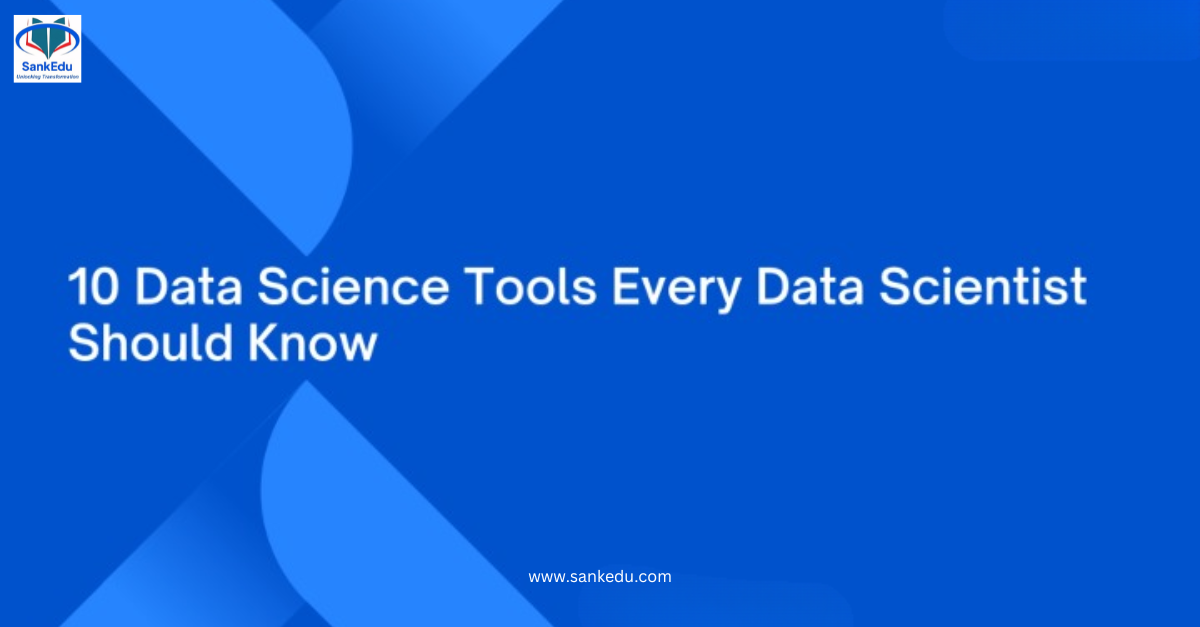
Introduction:
Data science has emerged as a critical field for extracting valuable insights from vast amounts of data, empowering organizations to make data-driven decisions. To excel in this dynamic domain, data scientists must equip themselves with a robust toolkit. In this blog, we will explore ten indispensable data science tools that every data scientist should be proficient in. Whether you are a seasoned data professional or an aspiring data scientist, mastering these tools will enhance your efficiency and impact in the realm of data science.
1.Python:
Python stands as the undisputed champion among programming languages for data science. Its versatility, ease of use, and extensive libraries such as NumPy, Pandas, and Scikit-learn make it an essential tool for data manipulation, analysis, and machine learning. A strong grasp of Python is foundational to any data scientist’s skillset.
2.R:
R is another popular programming language dedicated to statistical computing and data visualization. While Python is more versatile, R excels in statistical analysis and data visualization tasks. Data scientists often use R alongside Python to maximize their analytical capabilities.
3.Jupyter Notebooks:
Jupyter Notebooks provide an interactive computing environment that allows data scientists to blend code, visualizations, and explanatory text seamlessly. This tool facilitates data exploration, model development, and sharing of findings in a collaborative and reproducible manner.
4.SQL:
Structured Query Language (SQL) is essential for handling and querying relational databases, which are prevalent in many organizations. Proficiency in SQL enables data scientists to extract and manipulate data efficiently, contributing to informed decision-making.
5.Git:
Git is a version control system that helps data scientists manage code and collaborate effectively with team members. With Git, you can track changes, collaborate on projects, and easily revert to previous versions, ensuring the integrity and traceability of your data science work.
6.Tableau or Power BI:
Data visualization is a powerful way to communicate insights effectively. Tableau and Power BI are leading data visualization tools that empower data scientists to create interactive and compelling visualizations that can be shared across organizations.
7.Tensor Flow or PyTorch:
Deep learning has revolutionized various industries, and Tensor Flow and PyTorch are two of the most popular deep learning frameworks. These tools allow data scientists to design, train, and deploy complex neural networks for tasks such as image recognition, natural language processing, and more.
8.Apache Spark:
Apache Spark is a powerful distributed computing engine that enables data scientists to process large-scale data with speed and efficiency. It supports various data formats and offers a wide range of libraries for machine learning, making it an invaluable tool for big data analytics.
9.Excel:
While advanced programming languages are indispensable in data science, Microsoft Excel remains a valuable tool for data exploration, quick analysis, and generating basic visualizations. Its ubiquity in businesses makes it crucial for data scientists to have a working knowledge of Excel.
10.Scikit-learn:
Scikit-learn is a comprehensive machine learning library for Python. It offers a wide array of algorithms and utilities for classification, regression, clustering, and more. This tool simplifies the process of building and evaluating machine learning models.
Conclusion:
Becoming a proficient data scientist requires a diverse skill set and mastery of essential tools. The ten data science tools mentioned in this blog serve as a foundation for success in the field. Remember, continuous learning and exploration of new tools and technologies will keep you at the forefront of the ever-evolving data science landscape. Happy data science journey!
Recent Posts
Recent Comments
- Daniel Ndiema on Data-mining with Python
- Daniel Ndiema on Project 3 Basic Plotting Operations
- Daniel Ndiema on Project 1 Fundamentals of Python
- Daniel Ndiema on Project 2 Data Visualization
- Daniel Ndiema on Introduction to Python Exercises




0 responses on "10 Data Science Tools Every Data Scientist know"